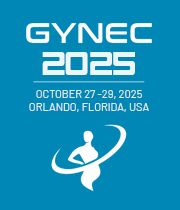Title : Investigating patients’ knowledge of clinical breast examinations
Abstract:
Background: While clinical breast exams (CBEs) have long been a standard part of health maintenance visits, recent evidence questions their utility in resource-rich settings where mammography is readily available. Systematic reviews suggest that for every cancer detected by CBE, there are 55 false positives. Guidelines vary: the ACS no longer recommends routine CBEs; NCCN supports them when feasible for women over 25; ACOG advises shared decision-making; and USPSTF makes no mention of CBEs.
Objective: This study aimed to assess patient experiences, knowledge, and preferences regarding CBEs in the context of evolving guidelines.
Methods: This IRB-approved study administered a 40-question Qualtrics survey to patients at a single academic medical center who were over the age of 25 and at a normal risk of breast cancer. Surveys characterized 1) patient demographics, 2) patient experiences of routine breast examinations, 3) patient knowledge of current breast examination guidelines, and 4) patient preferences for future breast examinations in light of current guidelines.
Results: Of 2,343 of surveys sent to patients in the medical system, 1108 were completed. Of those, 887 were eligible to complete the survey, and 221 were excluded due to responses that indicated they were at an increased risk for breast cancer. For the 887 eligible respondents, racial/ethnic distribution was 85% White (n=749), 7% Black (n=63), 5% Asian (n=41), 5% Hispanic/Latino (n=41), 2% Middle Eastern/North African (n=15), 1% American Indian or Alaska Native (n=11), and 1% other (n=8).
At their last health maintenance exam, 59% (n=515) received a clinical breast exam, and 55% (n=478) receive them annually. In addition, 83% (n=725) believe that CBEs are an important part of health maintenance. The majority of respondents (68%, n=597) believed that mammograms were more effective at detecting breast cancer. When given information on updated guidelines, 68% (n=591) did not change their opinion on the frequency at which they wanted to receive CBEs and 57% (n=495) still wanted to receive annual exams.
Conclusion: Despite awareness of the superior diagnostic value of mammograms, most patients view CBEs as a meaningful part of routine care and prefer to receive them annually. These preferences align most closely with NCCN and ACOG recommendations, highlighting the need for clear, patient-centered communication when navigating evolving screening practices.



